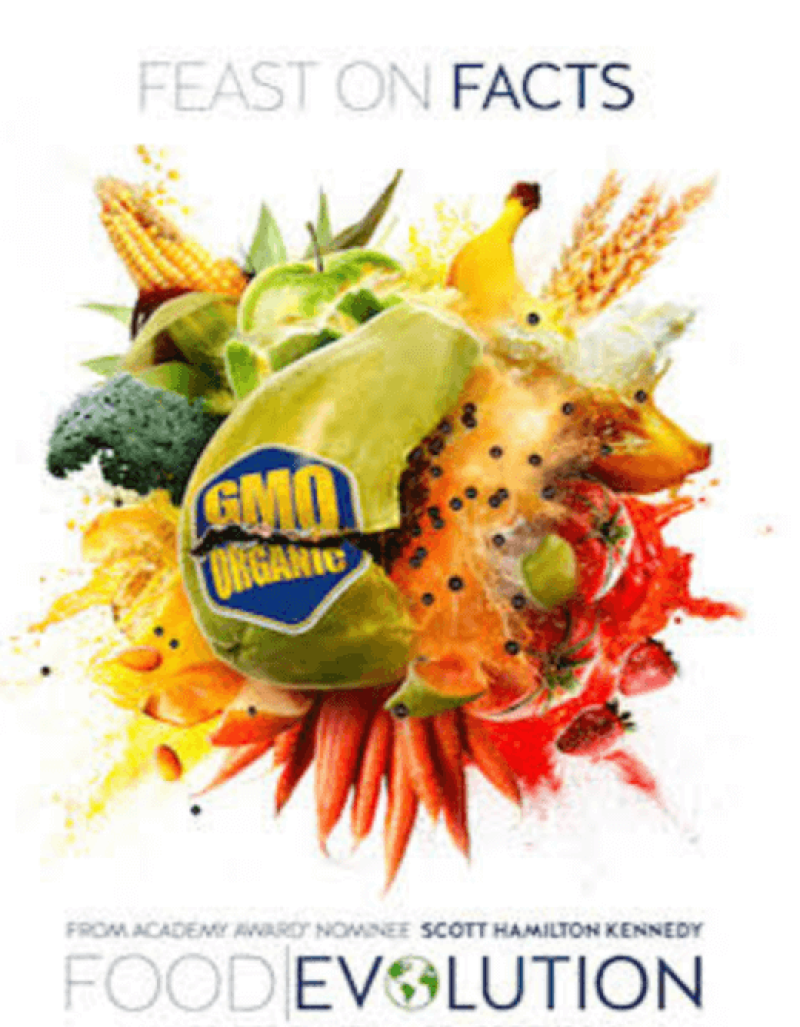Last year a Pew Research poll gauged public sentiment toward genetic engineering of food crops (familiarly, ‘GMO’). The results showed that while the public is consumed with fear and suspicion, scientists view the technology as safe and effective.
This divide may be due to the deep presence of non-scientific websites, books and films that abandon science to perpetuate a popular and profitable myth. Fear is their main vehicle. For anti-corporate reasons or simply to promote high-priced, lifestyle-based food products, there are many that create hyperbole and disparaging imagery around the science of genetic engineering. Many opposed to the technology are only experts at producing media targeted to tarnish the favorable applications of these helpful technologies.
Non-scientific media dominates the media. From alarmist pseudo-documentaries like Food Inc. and GMO OMG, to the scientifically painful inept fiction Consumed, media in this space are designed to shock and scare, knowingly at the expense of scientifically precise information. There have been few artistically-driven Hollywood efforts to speak up for the science, telling the evidence-based story to the majority of consumers that simply want to enjoy safe and affordable food produced sustainably.
But this trend is changing with a new series of scientific documentaries. The first film is Food Evolution, directed by Scott Hamilton Kennedy. The documentary examines the issues by taking a close-and-personal look at several global agricultural situations, the personalities involved, the successes, and most painfully, the damaging consequences of our failure to deploy useful technology that can help those in need. Food Evolution conveys a scientific story with imagery, humanity and compassion that scientists never could alone. The film is narrated by Dr. Neil deGrasse Tyson, adding his gravitas to this important topic.
The film centers on political and field situations in Hawaii, Uganda, and other locations throughout the world. The central players are the scientists that understand and share the benefits of these technologies. Scientists like Drs. Alison Van Eenennaam, Dennis Gonsalves, Pamela Ronald and Leena Tripathi, along with former anti-biotech activist and author Mark Lynas, carry the film as a vehicle that takes them through their discussions of the science and their interactions with the public and farmers.
But the film also provides enough rope to the charlatans that pollute a scientific discourse with manufactured fear. Prominent among them is Jeffery Smith, an author and film producer opposed to biotechnology. The film shows how he manipulates language, makes claims, and tweaks the emotions of concerned people to sell his science-challenged message. It exposes the for-profit misgivings of the ‘Food Babe’ Vani Hari, and the ideologically-charged anti-corporatism of other leaders in an anti-GMO movement that seeks to end the use of biotechnology- even if it hurts those in need. These are the most important aspects of the film because they expose how a cadre of non-experts is willing to bastardize science, and sacrifice progress and people for ideology and profit.
But the real stars of the show are a papaya, a banana, and the people that need them. Their story is shown with stunning imagery and emotion-evoking vignettes that encapsulate the frustrations we feel as scientists with solutions stalled by activist fear-mongering.
I’ve seen the film several times, and each time I’ve lost tears. As a scientist, it is painful to relive how safe and effective solutions that can change the lives of people and help our planet—but their use is restricted because of well-financed and coordinated misinformation and fear campaigns.
The beauty of Food Evolution is that it will benchmark a time when public sentiment was changing to support a pro-science message. For twenty years we have been told of horrors that never materialized. We have watched products intended to serve humanity languish in public laboratories because of affluent-nation fears. We have witnessed approval of scientifically-baseless legislation restrict choices for farmers. We’ve observed the internet’s profiteers tour the planet and reap personal wealth while lying to the public about science.
But even before the film has been presented in wide release, news of this film has prompted a typical and expected response from anti-biotech activists. They are shouting the tired claims that this is a Monsanto-financed propaganda flick and that nobody should trust it.
Watch for yourself and determine who is lying to you. Is it the politicians, celebrities and scaremongers, or the public, government and company scientists that have dedicated their lives to developing technology to solve problems for people and planet? This film answers that question in remarkable clarity.
Finally, high congratulations to Scott Hamilton Kennedy and his team. While the scientific community has extolled its virtues, it is unclear how the film community will embrace Food Evolution. However, ultimately the filmmakers can revel in the satisfaction that they told the truth at a time when those that stand up are punished for telling the truth. It is a brave, first-class effort that will age impeccably well, and perhaps punctuate the transition to a gentler time where science and reason rule over misinformation and fear.
Food Evolution opens in New York and Los Angeles on June 23rd.
A version of this article appeared at Huffington Post as “MOVIE REVIEW: ‘Food Evolution’” and has been republished here with permission from the authors and the original publisher.
Kevin Folta is professor and chairman of the Horticultural Sciences Department at the University of Florida, Gainesville. Dr. Folta researches the functional genomics of small fruit crops, the plant transformation, the genetic basis of flavors, and studies at photomorphogenesis and flowering. He has also written many publications and edited books, most recently the 2011 Genetics, Genomics, and Breeding of Berries. Follow him on Twitter @kevinfolta































